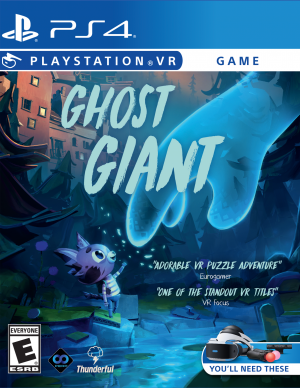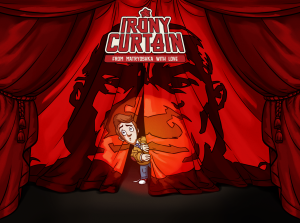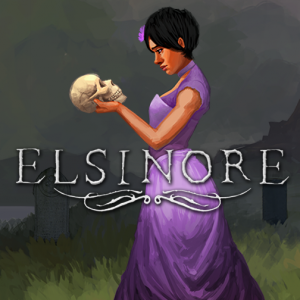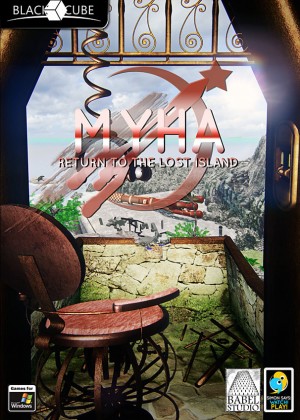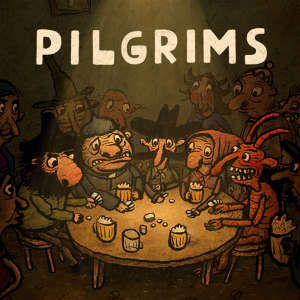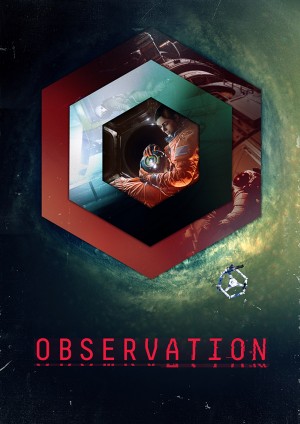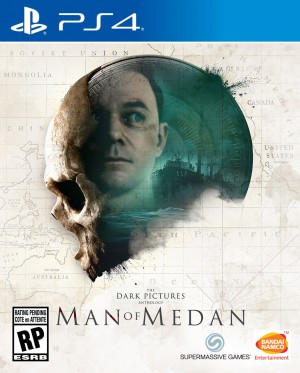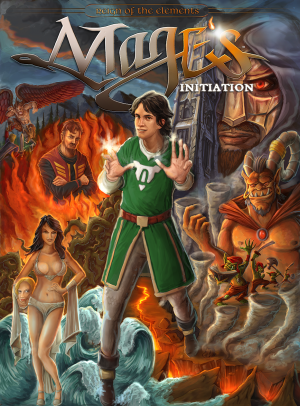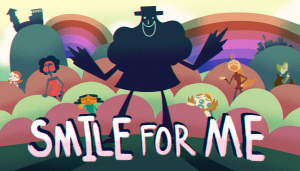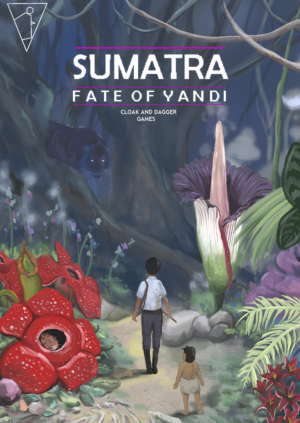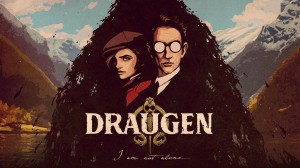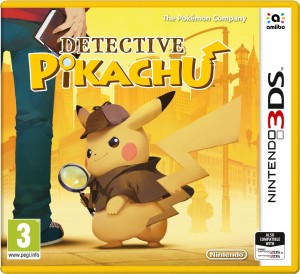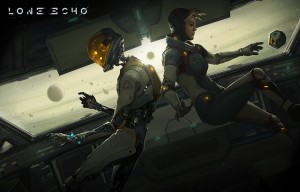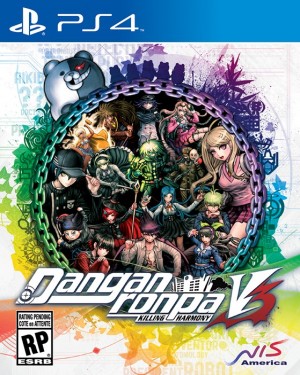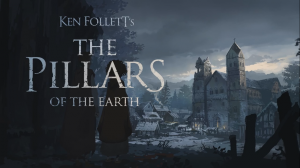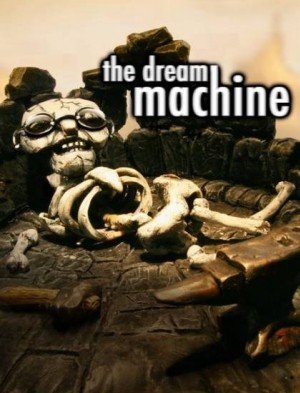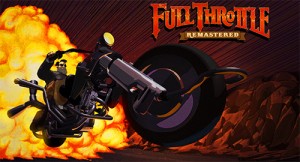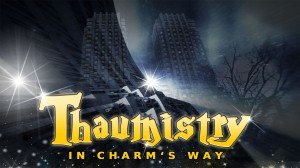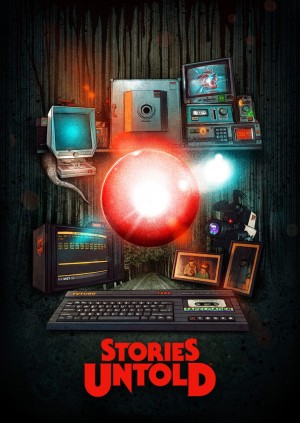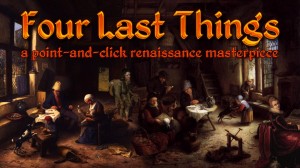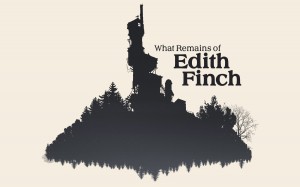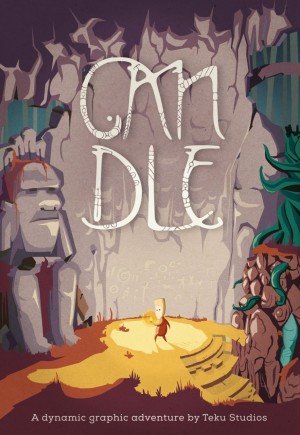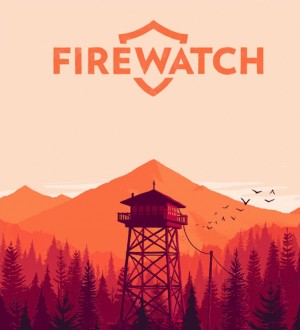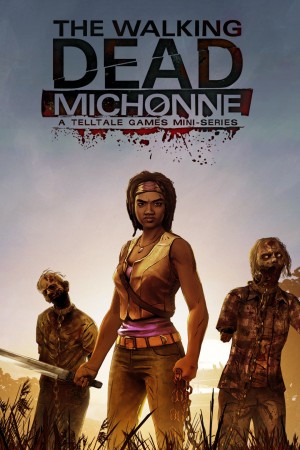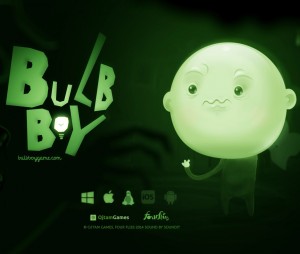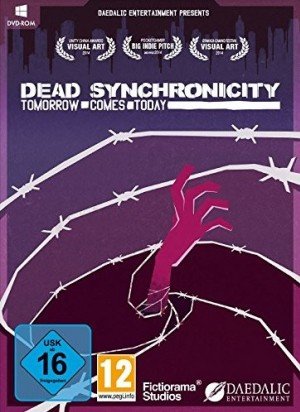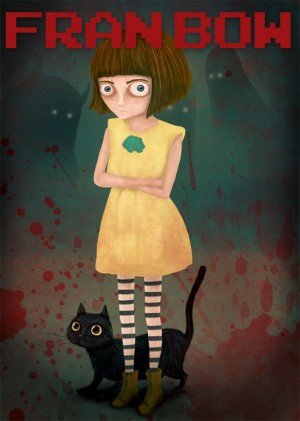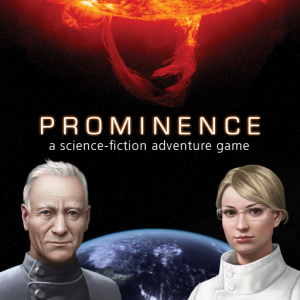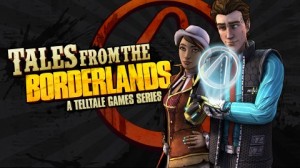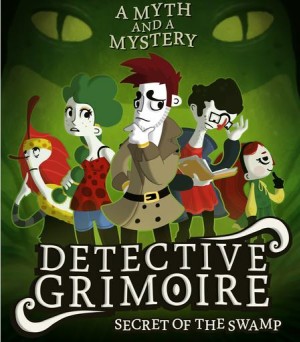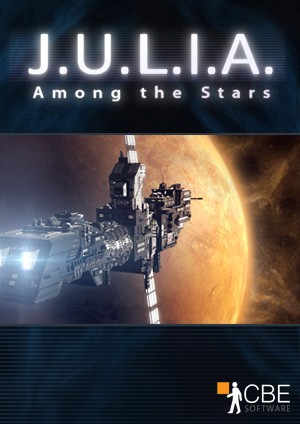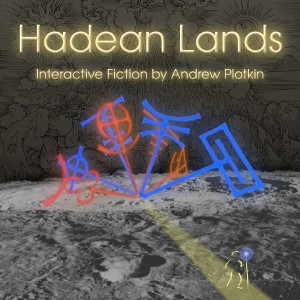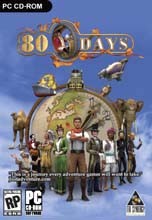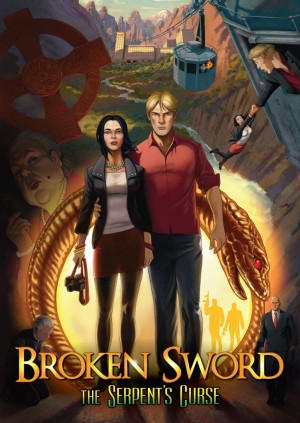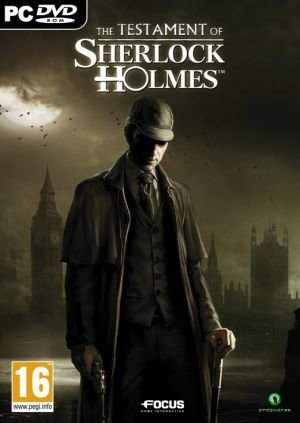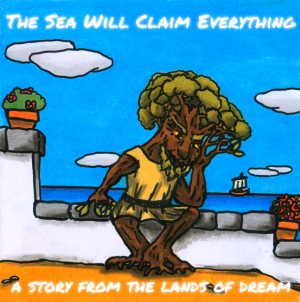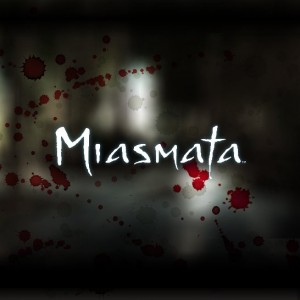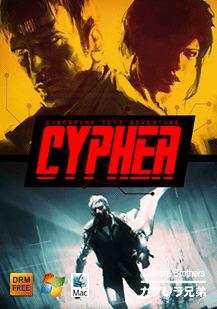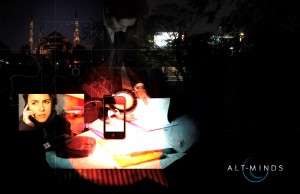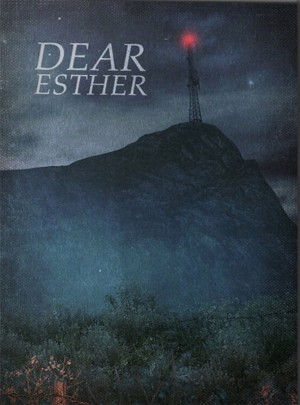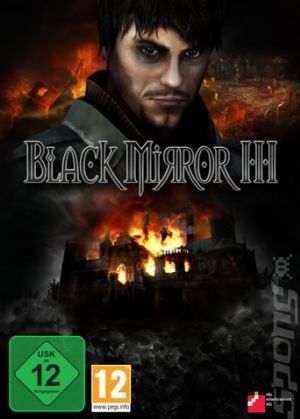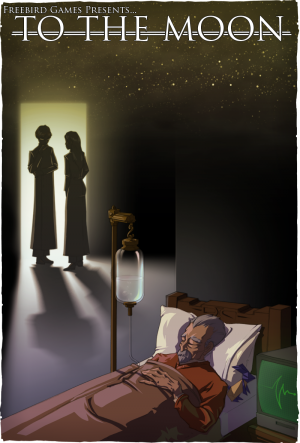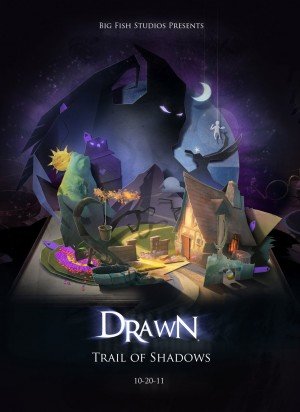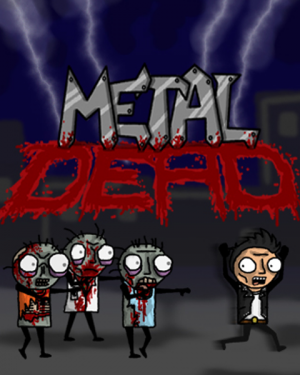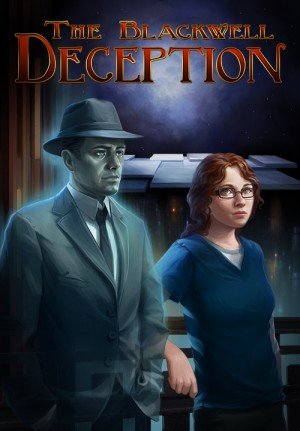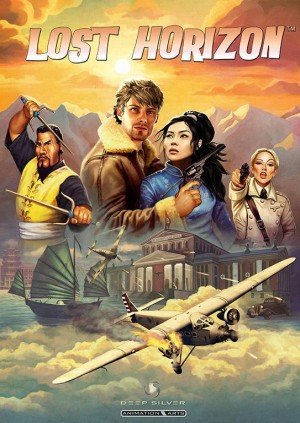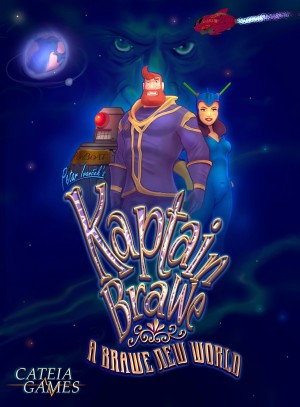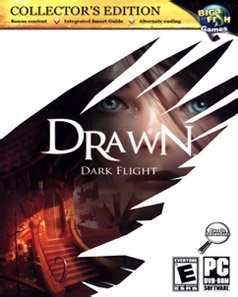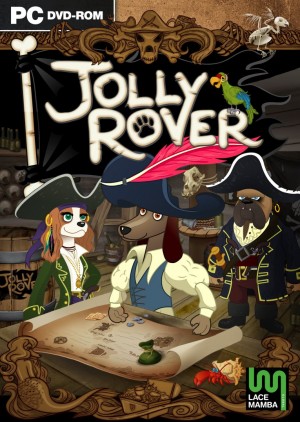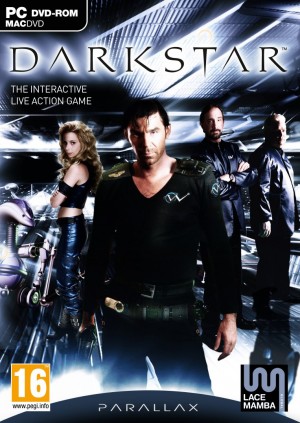The Silver AggiesAggie Award Winners

Every year there are some excellent games that fall just a little short of reaching the podium for various awards, either finishing as a runner-up or barely missing the finals entirely. With so many awesome titles to choose from, it’s easy for these near-misses to fall through the cracks, and that would be a shame. So while our Silver Aggies may not have precisely the same lustre as our golden statuettes, these bonus categories are another chance to hand out some much-deserved hardware – impressive new releases, all, that are no less worthy of any adventure gamer’s attention.
» Aggie Awards - category overview
The Aggie award winners:
Ghost Giant (2019 winner - Best VR Adventure)
Edging out Groundhog Day: Like Father Like Son as our top VR adventure of the year, Zoink’s charming Ghost Giant not only provides a musical dollhouse world of imaginative beauty to explore, it also has the courage to tackle serious themes like depression and mental illness tastefully without taking away from the childlike playfulness of the gameplay experience itself. Players control the titular massive spectre by manipulating the environment directly, but the only one who can see you is a feline boy named Louis. As you begin to earn his trust, your young companion grows to be more than just a sidekick but a true friend you’ll want to help and protect on his journey, giving the game a heartwarming Pixar feel that is sure to stick with you long after you’re done.
2019 winner of:
2019 Readers Choice' winner of:
- No awards won
Irony Curtain: From Matryoshka with Love (2019 winner - Best Defection)
Before 2019, Artifex Mundi was best known for its prolific catalogue of hidden object casual titles. But with Irony Curtain: From Matryoshka with Love, the Polish developer crossed over into full-fledged adventure territory, and did so in style. Set in 1951, this satirical romp is a classic point-and-click triumph. The protagonist is a young American named Evan who slips from starry-eyed beliefs to jolting doses of reality when he visits the eponymous communist party-controlled country. An irreverent story arc is brought to life by vivid cartoon-like graphics, impressive ambient animation, and tongue-in-cheek situations. Excellent voice-over work and Slavic music create a sometimes surprising, but always entertaining soundscape. Crazy fetch quests, Bronx-cheer-inducing item combinations, and hit-or-miss “official” procedures highlight an engaging gameplay experience achieved via layers of red tape, and watching Evan’s gradual grasp of the obvious (as well as a few well-hidden) truths is amusing and wildly endearing. Who knew life in a tyrannical dictatorship could really be this much fun!
2019 winner of:
2019 Readers Choice' winner of:
- No awards won
Elsinore (2019 winner - Most Original Adaptation)
“Though this be madness, yet there is method in’t.” When you first begin Elsinore, you’ll think you know what it is: a simulation of Hamlet shown from the point of view of one of its lesser characters, Ophelia. By the fifth time you restart Elsinore, it becomes apparent that much more is going on here than the Bard intended – and by the fiftieth time, you just might have a handle on what this game is truly about. Named after the royal Danish castle around which it’s set, this is a clever reimagining that detonates a time bomb underneath Shakespeare’s famous play and tasks you with picking up and making sense of the scattered pieces. With a time-looping structure, a woman of color protagonist, unexpected plot twists, and a huge amount of story to uncover, indie developer Golden Glitch Studios takes Elsinore well beyond its source material to secure a Silver Aggie for 2019’s most original adaptation.
2019 winner of:
2019 Readers Choice' winner of:
- No awards won
For 2019 there were 2 winners in the category Best Head-Scratchers.
Myha: Return to the Lost Island (2019 tied-winner)
Myst fans lament the dearth of puzzle-centric experiences in these times of ever-easier adventures, making Simon Mesnard’s Myha: Return to the Lost Island such a welcome breath of fresh air for puzzle lovers. Originally a small freeware game jam submission before being radically overhauled for commercial re-release, Myha’s locales are enticing, idiosyncratic, and strewn with puzzle clues. It’s a paradise for those who love multi-stepped conundrums. The surroundings can be distracting, so you’ll need to gaze past their surface beauty for crucial details overlooked, whether jigsaw-like symbols in an outdoor classroom or mechanical birds emitting musical notes. Keep searching to find carvings, torn pages, or drawings in drawers, and fiddle with any laptop computers, control panels, levers, and colorful spheres you encounter. And what to make of the stranded rocket ship, a mysterious tower, and secret hidden passages? For the careful observer, answers will gradually start to emerge, but it won’t be easy. This is a great game, but only for those who relish the fun and frustration (funstration?) of a significant challenge.
2019 winner of:
2019 Readers Choice' winner of:
- No awards won
The Sojourn (2019 tied-winner)
With over sixty 3D levels of navigation-based obstacles to overcome, Shifting Tides’ The Sojourn provides plenty of brain-straining enjoyment as well. Utilizing teleporting totems, bridge-building harps, and ancient archways to travel back and forth between a shadowy alternate dimension, among other key gameplay elements, players must wend their way through a plethora of increasingly tricky environments to progress past massive cathedral towers, rocky paths and flowing waterfalls, lush foliage, snow-covered peaks and a dark sandy desert. These challenges provide a deep sense of satisfaction when they finally yield to clear thinking and a bit of experimentation. Wrap all this up in a stylish presentation of impressive sights and sounds, then throw in even more difficult bonus “golden scroll” objectives to boot, and you’ve got one splendid puzzler on your hands.
2019 winner of:
2019 Readers Choice' winner of:
- No awards won
Heaven’s Vault (2019 winner - Not to be Lost in Translation)
The “Guitar Hero of languages” is how one developer from inkle described Heaven’s Vault, and while you aren’t hastily trying to crack translations in front of a baying audience, the comparison definitely rings true. Playing as feisty archaeologist Aliya Elasra, you’re joined by your robotic companion Six in a hunt across an alternate universe called the Nebula for a roboticist who’s gone missing under very suspicious circumstances. Your interplanetary adventures take you to cluttered markets, arid deserts, gleaming paddy fields and the ruins of temples with questionable ancient traditions. The dialogue is beautifully written and the diverse landscapes equally lovely to explore, but to delve deeper into the fascinating lore you have to learn to translate the pictorial glyphs left scattered on the trinkets and pages you discover in your travels. The game features a vocabulary entirely made-up from scratch that must be decoded using guesswork and similarities to other previously translated words to figure it all out, creating a wonderful pursuit of that “rockstar” feeling of nailing the correct translation that's every bit as satisfying as perfecting the most difficult guitar riff.
2019 winner of:
2019 Readers Choice' winner of:
- No awards won
Pilgrims (2019 winner - Not to be Lost in the Shuffle)
Amanita Design surprised us out of the blue with Pilgrims, a slightly different style of game than the likes of Machinarium and CHUCHEL, and yet the acclaimed Czech studio’s telltale trademarks are all here. Slapstick humour? Check. Funny gibberish for dialogue? Yep. Surreal music and beautiful hand-drawn graphics? Definitely. Better yet, this romp through a dark fairy tale kingdom of beasts and princesses is packed full of inventive twists. Similar to the minigame introduced in Samorost 3, gameplay sees you building a card deck of objects and characters as your inventory to combine and use with scenes around you as your creative mind sees fit. Naturally, flinging the devil character card at a priest has interesting consequences, but what would happen if you’d used the beer card to get our crusty cleric a little bit tipsy first? It's a short game but there's loads of replay value here, with 45 achievements to unlock as you traverse the ever-expanding map, dancing with bears and cooking up magic mushrooms as you go along. And as with the best of Amanita’s games, there is plenty of reason to get things wrong in the most spectacular and hilarious ways possible.
2019 winner of:
2019 Readers Choice' winner of:
- No awards won
Observation (2019 winner - Most Intelligent Adventure)
Don’t mistake No Code’s sci-fi adventure for just another lone-astronaut-in-a-derelict-space-station tale. Observation takes the unique approach of making players not the human survivor, but the AI unit named SAM (System Administration and Maintenance) who must get its charge to safety amidst a series of escalating crises along the way. Sharing an increasingly close relationship with your human companion, you will make use of inventive gameplay techniques to succeed, connecting to various laptops, cameras, diagnostic equipment and more, eventually even becoming mobile as you navigate zero gravity environments within your Low Orbital Space Station. Presented through top-notch graphics and voice acting, the plot begins innocently enough but soon becomes quite sinister, raising questions about your own involvement in the disaster that’s transpired. An intelligent adventure indeed – an artificially intelligent one!
2019 winner of:
2019 Readers Choice' winner of:
- No awards won
For 2019 there were 2 winners in the category Best Whodunits.
Detective Di: The Silk Rose Murders (2019 tied-winner)
Detective Di: The Silk Rose Murders
Solving crimes is a staple of adventure games, but usually it adheres to familiar Western influences. Not so for Nupixo Games’ Detective Di: The Silk Rose Murders, with its decidedly Eastern setting during the reign of China’s first and only female empress in AD 684. Based loosely on the real-world Chinese law officer Di Renjie, this is a mystery that ventures into seldom-explored locales and customs to tell a tale of a grisly serial killer, all against the backdrop of escalating political turmoil. With a wide range of tasks to perform – including scouring crime scenes, interviewing an array of interesting suspects, solving actual riddles, and cracking crimes on deduction boards – and simple but distinctive audio and visuals, Detective Di provides a wonderful breath of fresh air for armchair detectives everywhere.
2019 winner of:
2019 Readers Choice' winner of:
- No awards won
Tangle Tower (2019 tied-winner)
Back in the West, detectives in adventure games almost seem to be superheroes at times, able to deduce your entire life just from some crumbs on your coat. That makes it even more refreshing that the ever-amusing Detective Grimoire and Sally, stars of SFB Games’ beautifully designed Tangle Tower, are just regular folk confronted by a most irregular murder. The pair are called to solve a crime in which it seems a painting is the culprit, a bizarre premise but the perfect opening for a game that sees players uncovering mysteries about two weird and wonderful rival families who all live in the same secluded island mansion. Of course you’ll get to question suspects, uncover clues, and piece together evidence to try to determine who (or what!) the killer is, solving a variety of puzzles along the way. Good luck cracking it before the reveal, though. It’s everything you’d want from a whodunit, with superb visuals and voice acting as the cherry on top. So if you’re up for some laughs and a fun bit of offbeat investigating, grab that magnifying glass and head on over to Tangle Tower.
2019 winner of:
2019 Readers Choice' winner of:
- No awards won
For 2019 there were 2 winners in the category Best Animal Adventures.
Frog Detective 2: The Case of the Invisible Wizard (2019 tied-winner)
Frog Detective 2: The Case of the Invisible Wizard
Sometimes people suck, and what this world needs to brighten it is a little frog with a magnifying glass trying to talk some sense into a rhino named Mary who’s singing at 3am. Frog Detective 2 expands on its predecessor’s deadpan wit and charm with an even wider cast of weird characters to interrogate. Playing as the titular amphibian P.I., this time you’re faced with the important matter of finding out who trashed the parade decorations for Warlock Woods’ newest guest. Once again you must speak to a veritable zoo’s worth of anthropomorphic animals to find out what’s really gone on – even an eye-patch-wearing lion called Ralph – but now you get a snazzy notebook to record your findings, which you can jazz up with stickers of smiling eggs and whatnot. It’s a short game but a delightful little ray of silly sunshine that developer Grace Bruxner has filled with warmth and hilarity.
2019 winner of:
2019 Readers Choice' winner of:
- No awards won
A Short Hike (2019 tied-winner)
When not on the job, it’s always nice to get out for A Short Hike. It’s easy to fall in love with the beautiful landscapes and cute animal visitors in indie developer Adam Robinson-Yu’s mountain getaway adventure. Playing as a young bird with limited abilities at first, in no time at all you’ll find yourself high up in the sky over Hawk Peak Provincial Park, soaring past forests and waterfalls and sandy beaches. Exploring the lush outdoors is the focus of the experience, inviting players to freely run, climb, swim or glide while indulging in light-hearted conversations with quirky strangers, a variety of treasure hunts, and even some friendly athletic competitions if you’re up to the challenge. Like any great vacation, it’s over all too soon, but while it lasts this game perfectly captures the essence of adventure and wonder that is not to be missed.
2019 winner of:
2019 Readers Choice' winner of:
- No awards won
For 2019 there were 2 winners in the category Creepiest Adventures.
The Dark Pictures Anthology: Man of Medan (2019 tied-winner)
The Dark Pictures Anthology: Man of Medan
Supermassive Games is no stranger to the horror genre, first rising to prominence with 2015’s Until Dawn. The debut installment of their Dark Pictures Anthology hits many of the same notes, and unlike its predecessors, thankfully Man of Medan is not a PS4 exclusive. To make the terror work, the developers chose a truly frightening setting: a derelict World War II freighter stranded at sea. A rusted-out ghost ship is more than a little eerie, with distant disembodied sounds echoing through the deathly silence, and that’s before the nightmare creatures and haunting visions show up. The survival of all five young protagonists throughout the night is completely dependent on your choices and quick thinking, and for anyone willing to brave the experience, it’s sure to be a white-knuckle thrill ride.
2019 winner of:
2019 Readers Choice' winner of:
- No awards won
Moons of Madness (2019 tied-winner)
A little farther from home, the developers at Rock Pocket Games decided to dive into the Cthulhu mythos for their eldritch-themed space horror adventure, committing themselves to delivering a fright fest worthy of its Lovecraftian influence. Relying less on jump scares or overt danger, Moons of Madness opts to present an ever-increasing atmosphere of tension and dread, at times even styling itself in the famed author’s literary voice, creating more than just the usual tenuous connections to his acclaimed body of work. For an intense walk along the razor’s edge of sanity, with its own unique set pieces and a Mars setting far removed from the typical Lovecraft yarn, this is a must-play for anyone interested in slow-burn science fiction terror.
2019 winner of:
2019 Readers Choice' winner of:
- No awards won
For 2019 there were 2 winners in the category Best Retro-Styled Adventures.
Feria d’Arles (2019 tied-winner)
Like its diminutive protagonist, Feria d'Arles packs an incredible amount of wit, charm, and personality into a deceptively small package. Gorgeous pixel art, laugh-out-loud dialogue and a lively soundtrack combine to create an experience more than worthy of comparison to the classics of yesteryear. You won't spend more than an hour or two helping its young protagonist Molly to become France's greatest matador, but every moment in her company is a joy, full of cleverness, colour and character. (And animal lovers can rest easy knowing no bulls are ever harmed.) Games like Feria d'Arles are proof positive that sometimes they do still make 'em like they used to, and do it just as well.
2019 winner of:
2019 Readers Choice' winner of:
- No awards won
Mage’s Initiation: Reign of the Elements (2019 tied-winner)
Mage’s Initiation: Reign of the Elements
[The Aggie Awards – The Best Adventure Games of 2019 - Image #17] Another prime demonstration that the genre's nostalgic present is easily as enjoyable as its venerated past is Mage’s Initiation: Reign of the Elements. Almost a full decade in the making, Himalaya Studios’ second commercial endeavour proved to be worth every bit of the wait as one of the best retro-style experiences of 2019. With a healthy amount of both the childlike sincerity of the King’s Quest fantasy adventure series and the dangerous combat and stat-building RPG elements of Quest for Glory, along with beautiful background pixel art, excellent writing, superb music and wonderful voice acting throughout its rather substantial play time, this game is both a love letter to the Golden Age of Sierra On-Line games and a modern day hybrid gem in its own right.
2019 winner of:
2019 Readers Choice' winner of:
- No awards won
For 2019 there were 2 winners in the category Best Kept Secrets.
Smile for Me (2019 tied-winner)
If you’re going to call your game Smile for Me, you better make sure you deliver a feel-good experience, and LimboLane’s debut adventure does just that. The game will captivate you from the start with a surreal art style that blends together flat paper-like characters, realistic props and 3D environments. But it becomes even more engaging the further you proceed thanks to its cutesy yet sinister world, charming ensemble of misfit characters, and intriguing mix of both old and new gameplay elements. Providing a welcome twist on the familiar point-and-click formula is the “Nod-n-Shake” dialogue feature for its mute protagonist, in which you answer simple questions by physically moving your mouse in a “yes” or “no” motion. All in all, this very bizarre, almost psychedelic adventure about making friends and helping people accept who they really are will surely put a grin on your face and is well worth playing.
2019 winner of:
2019 Readers Choice' winner of:
- No awards won
Sumatra: Fate of Yandi (2019 tied-winner)
Looking like an ‘80s Sierra adventure but blissfully lacking the unexpected risk of death or dead ends, Sumatra: Fate of Yandi by Cloak and Dagger Games provides an entertaining glimpse into the titular tropical rainforest from the point of view of a simple logger just looking to get by. When business interests and industrial espionage intervene, Yandi is stranded in the wilds of the jungle and forced to use only his wits to survive if he’s to return to civilization and his loved ones again. Along with its nostalgic retro look and feel, the game’s greatest strengths are its strong characterizations and intriguing story, touching on themes of family, environmentalism, corruption, and more, giving it a surprising narrative weight that is seldom seen. It’s a jungle out there, but one you'll want to delve deeply into for a fantastic adventure experience.
2019 winner of:
2019 Readers Choice' winner of:
- No awards won
For 2019 there were 2 winners in the category Best of the Rest.
Argonus and the Gods of Stone (2019 tied-winner)
In the name of the mighty Zeus, the just Athena, and the industrious Hephaestus, hearken to our plea to honour Argonus, a simple mapmaker pressed into service by the gods to free the petrified souls of an island’s inhabitants. In Argonus and the Gods of Stone, your encounters with various towering deities of Greek mythology are truly impressive, but the journey before you is a daunting one. Weaving together various elements of legend into an original story and pairing them with Ray Harryhausen-esque slick 3D visual design, Zojoi’s real-time first-person adventure is a wonderful trip into a world of magic and monsters. Its award may not be fleece-coloured gold, but the Aggies simply wouldn’t be complete without extolling its many virtues.
2019 winner of:
2019 Readers Choice' winner of:
- No awards won
Draugen (2019 tied-winner)
Ragnar Tørnquist and Red Thread Games may be better known for their sci-fi fantasy epic Dreamfall Chapters, but in Draugen they turned their sights to something a little more intimate. It’s 1923 and Edward Harden and his chatty young ward Lissie have traveled to an isolated fishing village in Norway in search of Edward’s sister. It quickly becomes apparent that something’s not right, however, as the town of Graavik appears to be entirely deserted. The pair naturally begin to investigate, giving players the chance to soak in the eye-popping vistas of this lovely coastal region, and eventually you’ll unveil the dark secrets concealed in this seemingly idyllic place. And with ever-increasing hints of something supernatural creeping in around the edges, Draugen presents a mysterious, melancholy mystery bristling with questions right to the finish.
2019 winner of:
2019 Readers Choice' winner of:
- No awards won
The Walking Dead: The Final Season (2019 winner - Fondest Farewell)
The Walking Dead: The Final Season
It was never going to be an easy goodbye to Clementine, a character we first met scared in a treehouse and who has grown up through unimaginable horrors right before our eyes. But little did we expect that the fictional drama of the young star’s last outing would be echoed by the real-life crisis of developer Telltale Games being shut down midway through the season. Which makes it even more impressive that The Walking Dead: The Final Season is so good, filled with more punchy thrills and difficult choices after being brought back from the dead by Skybound Games. While there’s ample violence, this series was never about the zombies but rather the human characters and their relationships that made it soar. Here we’re treated to the wonderful dynamic of a motherly Clem and youthful AJ, perfectly mirroring the care that Lee gave all those years ago to his young charge when she was but a little girl. In its focus on the younger generation’s perseverance and determination to survive, there are the usual gut-wrenching moments, of course, but also hope along the way. This is a bittersweet ending, yet a journey we’re delighted to have taken.
2019 winner of:
2019 Readers Choice' winner of:
- No awards won
My Brother Rabbit (2018 winner - Best Casual Adventure)
Though decidedly more lightweight than traditional adventure game fare, My Brother Rabbit tells a heart-wrenching story about a young girl’s struggle with a serious illness, and her brother’s dream that his favourite toy, a stuffed rabbit, will help her recover. The quest to find healing becomes an imaginative journey through surreal, vivid environments stuffed with fantasy elements: eyeballs with antlers, bugs grilling hotdogs, a winged watering can that pours out a rainbow, to name just a few. Achingly beautiful introductory music, delightful animations, and a creative sound layer (including jigsaw-like challenges where each piece adds to a quirky rhythm ensemble) build an atmosphere of innocence and whimsy. Varied classical conundrums keep players artfully engaged, as do multi-pronged searches for numerous objects that launch new areas or trigger colourful puzzle-based gadgets. This is no run-of-the-mill hidden object game, so don’t let its “casual” label fool you – it’s a seriously charming, first-rate little adventure that everyone and their brother should try.
2018 winner of:
2018 Readers Choice' winner of:
- No awards won
Detective Pikachu (2018 winner - Best Handheld Adventure)
The idea of turning such a cheery and loveable Pokémon into a gruff-sounding sleuth may seem like a strange one, but Detective Pikachu pulls it off in style. Teaming up with a boy named Tim, the P.I. is drawn into a variety of entertaining mysteries to crack, and when you do you’ll be as happy as the titular protagonist when he exclaims: “A bolt of brilliance!” The bright, colourful visuals bring the world to life, supported by plentiful cutscenes that are emotively animated and nicely acted. The star of the show, of course, is the diminutive detective, who loves coffee, sweets and flirting, and he’s a genuine joy to have around. We were skeptical about the series making such a radical leap from RPG to investigative mystery, but the end result is well-written, fun, and takes solid advantage of the 3DS format to make Detective Pikachu worthy of the distinction of 2018's Best Handheld Adventure.
2018 winner of:
2018 Readers Choice' winner of:
- No awards won
For 2018 there were 2 winners in the category Best Side-scrollers.
FAR: Lone Sails (2018 tied-winner)
For the longest time, side-scrollers belonged to the likes of Mario rather than Myst. Then along came titles such as Limbo and INSIDE to make puzzle-solving more of a focus, to go with some running and jumping. But increasingly such games are starting to phase out even death-defying acrobatics in favour of a more cerebral experience. Games like Okomotive’s FAR: Lone Sails, an atmospheric and inventive little post-apocalyptic adventure. It’s your job not to navigate the beautifully painted backgrounds yourself, but to ensure that your hybrid patchwork vehicle – part truck, trailer, train, even sailboat – is fueled and ready to meet all challenges, including physical obstacles and inclement weather. Here “inventory” means managing the resources you scavenge, maintaining your vessel as it begins to break down, quite literally putting out fires along the way. The craft soon becomes an extension of yourself, your only lifeline to exploration and even survival. Don’t let it pass you by, as FAR is a terrific little adventure that defies all preconceived notions of what a side-scroller should be.
2018 winner of:
2018 Readers Choice' winner of:
- No awards won
Forgotton Anne (2018 tied-winner)
Every now and then you run into a game that looks like it belongs to another genre but is at its core a true and proper adventure. Such is the case with Forgotton Anne from ThroughLine Games, a side-scrolling platforming journey through the land of forgotten things come to life. As you guide the eponymous “Enforcer” through this beautifully rendered world filled with fluidly animated hand-drawn characters, you’ll be able to mold her along the way, deciding how strict or compassionate she is in dealing with rebel Forgotlings bent on a path that could prevent her from returning to the real world forever. With a nicely fleshed-out supporting cast, meaningful choices to make, clever mechanical puzzles to solve, and only a little mild running and jumping in between, you’ll come to understand that side-scrollers aren’t just the domain of platformers anymore.
2018 winner of:
2018 Readers Choice' winner of:
- No awards won
For 2018 there were 2 winners in the category Best Comebacks.
Hero-U: Rogue to Redemption (2018 tied-winner)
Show us a classic adventure game fan, and we’ll show you someone who’s likely played (and probably loved) at least one of Lori and Corey Cole’s Quest for Glory games. Hero-U: Rogue to Redemption isn’t a continuation of Sierra’s popular series, but it’s very much a spiritual successor that once again beautifully marries adventure and traditional role-playing game elements. Released twenty years after the last QfG, it feels as if its designers haven’t missed a beat. Offering the exploration and character interactions of an epic adventure with combat and player options pulled right from the RPG genre – and of course more puns than you can shake a stick at – it’s as much a new lease on life for one of our favourite adventure franchises as it is a triumphant return for the Coles.
2018 winner of:
2018 Readers Choice' winner of:
- No awards won
Leisure Suit Larry: Wet Dreams Don’t Dry (2018 tied-winner)
Leisure Suit Larry: Wet Dreams Don’t Dry
“Finally, the time has come... He has awakened. Everyone thought he was gone, forgotten, and many said this was a good thing. But The Chosen One from the prophecy... lives!” Perhaps this opening proclamation is a bit grandiose, but then when did Leisure Suit Larry every do anything small? (Well, except… y’know.) In any case, it’s true! After re-emerging a few years back in Reloaded, now Larry Laffer is back in Wet Dreams Don’t Dry, his first all-new adventure since 1996 (we’re all agreeing those other abominations in between don’t count, right?) This time around, he and his outdated attitudes have been abruptly thrust into modern times, so how will he fare in today’s world? Just fine, thankyouverymuch! Still looking for someone to help spruce up his non-existent love life, Larry remains the desperate, breath-spray-drenched miscreant we’ve come to know and love (from afar). But while many of his actions are predictably deplorable, in a way Larry makes the perfect protagonist to examine the cultural and technological changes that have occurred since his 1980s debut. We had our doubts about this bold premise from a new team and no Al Lowe on board, but were ultimately won over. Welcome back, Larry.
2018 winner of:
2018 Readers Choice' winner of:
For 2018 there were 2 winners in the category Best Kept Secrets.
Beyond the Sky (2018 tied-winner)
With such a long history of point-and-click adventures, it’s always enjoyable to find one that plays with the formula, does new things, and yet still feels familiar and comforting. Iperurania Arts’ Beyond the Sky delivers just such an experience, though you wouldn’t know it at a glance. Between progressively unlocking new abilities for its young, naïve protagonist Selene, and presenting a number of challenging logic statement puzzles (and then offering necessary support in solving them), this is a surprisingly rich gameplay experience that becomes increasingly delightful throughout. Add in a lovely paper cutout visual style and storybook-style prose, and the only thing preventing this charming tale from a happily-ever-after ending is enough of an audience to enjoy it.
2018 winner of:
2018 Readers Choice' winner of:
- No awards won
Illusion: A Tale of the Mind (2018 tied-winner)
Frima Studio’s Illusion: A Tale of the Mind is such a well-kept secret, even its publisher doesn’t want you to know about it. At least, that’s all one can assume from the near-total absence of publicity for it. But allow us to rectify that oversight by banging the drum loudly for this gorgeously surreal platforming adventure. A bittersweet, psychologically twisted story taking place in a dreamlike version of a 1920s Parisian carnival and the battlefields of World War I (along with more than a few creepy catacombs), Illusion stars a young girl named Emma and her trusty floating sidekick toy rabbit Topsy, who must navigate the tortured memories of a broken-hearted strongman, all while solving puzzles and evading the deadly grasp of a malevolent entity intent on their destruction. For all its dark subject matter, however, it’s offset by a delightfully charming sense of innocence and whimsy, brought to life with beautiful 3D artwork, fluid animation, and a wonderfully eclectic soundtrack. So now you know. Don’t let lack of marketing be the reason for missing out on this surprising little gem.
2018 winner of:
2018 Readers Choice' winner of:
- No awards won
For 2018 there were 2 winners in the category Best of the rest.
The Gardens Between (2018 tied-winner)
With The Gardens Between, The Voxel Agents have successfully crafted a true slice of childhood reminiscence, a trip down memory lane to recall those valuable friendships we’ve (hopefully) all had that continue to hold in a special place in our hearts long after the people themselves have moved on from our lives. Strip away the touching emotional core, however, and you’ve still got a lovingly-crafted, exquisitely-detailed time-bending puzzle-adventure with tons of charm, wit, and creativity that we just couldn’t help but fall in love with. It may not have taken top honours in any specific category, but it more than deserves its mention as one of the Best of the Rest of 2018.
2018 winner of:
2018 Readers Choice' winner of:
- No awards won
Unforeseen Incidents (2018 tied-winner)
A nobody from nowhere saving the world is a well-worn path in fiction, but one that Unforeseen Incidents walks with style. It’s clear from its opening moments that Backwoods Entertainment’s 2D point-and-click adventure was a labour of love. Here we meet Harper Pendrell, college dropout and handyman slacker, who is thrust into a world of intrigue and danger as a mysterious disease sweeps the United States leaving death in its wake. Backed by one of the best voice performances ever, our unlikely hero endeavours to get to the root of the problem, making friends and allies along the way. Top that off with some wonderfully layered puzzles that have that “just right” feeling of difficulty, a gorgeous pen-and-ink visual design, and a solid soundscape across the board, what you get is an adventure that’s not to be missed, even if it didn’t walk off with a golden Aggie to call its own.
2018 winner of:
2018 Readers Choice' winner of:
- No awards won
Lone Echo (2017 winner - Best VR Adventure)
While 2016 marked VR’s coming-out party, 2017 brought us the first truly mature virtual reality originals. Games of all genres have been scrambling to find what does and doesn’t work in this new medium, and many have succeeded to varying degrees, but Lone Echo is one of the few so far to feel like it has all pieces. The way it handles interaction and locomotion is nothing short of a revelation. In allowing players to reach out and grab anything, and to use that to move through the world, developer Ready at Dawn have not only solved the problems of continuity and motion sickness in VR, but they’ve created the most tangible world in all of gaming. Add to this a surprisingly intimate story about two crew members, some truly lavish production values, and a vast open world to explore, and you have perhaps VR’s first truly essential title. Virtual reality adventures may be a niche-within-a-niche, but no conversation about the year’s best titles would be complete without Lone Echo mentioned prominently.
2017 winner of:
2017 Readers Choice' winner of:
- No awards won
Danganronpa V3: Killing Harmony (2017 winner - Best Japanese Adventure)
While it may seem odd to single out a particular culture for recognition, there’s no question that Japanese adventure games are something of an acquired taste. Though typically featuring familiar genre traits like mysteries to solve in unusual settings filled with casts of wonderfully colourful characters, when these elements are steeped in the over-the-top world of anime and manga from an Eastern mindset, some delightful, unforgettable, and occasionally bewildering experiences result. Take Danganronpa V3: Killing Harmony, the superlative third entry in a series renowned for its bizarre killing-game courtroom battles. While by no means breaking new ground, its roster of competing student protagonists (and villains) marks the high point of the franchise so far, complemented by a beautiful art style and musical score, enough twists and turns to keep players guessing until the very end, and gameplay packed so full of activities that you’ll still be going strong 30 hours in. It’s weird, it’s wild, it’s like nothing you’ll see from Western developers, and for that we are pleased to acknowledge it as the best in its class for 2017.
2017 winner of:
2017 Readers Choice' winner of:
- No awards won
The Pillars of the Earth (Ken Follett’s) (2017 winner - Best Episodic Debut)
The Pillars of the Earth (Ken Follett’s)
Daedalic's decision to adapt The Pillars of the Earth, Ken Follett's much-loved epic historical novel, into a three-part point-and-click adventure seemed to be an overly ambitious quest, but a remarkable first “Book” went a long way in allaying our fears. Filled with a visual sense of breathtaking wonder at the hand-painted medieval architecture of 12th century England, accompanied by an inspiringly beautiful original soundtrack from the FILMHarmonic Orchestra of Prague, and populated with an impressive number of superbly voiced characters, the debut installment offers an interactive experience of exceptional quality that lives up to the towering legacy of one of the truly great modern works of fiction. Although light on puzzling, it remains true to its source material and yet still manages to introduce elements of player choice that allow for genuine moments of uncertainty, always a difficult feat for adapted material. There is more of the story left to come, but there's no question that the first part of The Pillars of the Earth came as one of the most welcome surprises in 2017.
2017 winner of:
2017 Readers Choice' winner of:
- No awards won
The Dream Machine: Chapter 6 (2017 winner - Best Episodic Finale)
The Dream Machine: Chapter 6
Though it may have taken longer than first expected, what started way back in 2010 finally reached its rewarding conclusion in 2017 when Anders Gustafsson and Erik Zaring released their sixth and final chapter of The Dream Machine, closing the book on a momentous undertaking. There’s good reason it took so long, of course. What makes this series stand out from the rest is immediately apparent thanks to the indie Swedish studio’s unwavering commitment to hand-crafting each episode using clay, cardboard, and other raw materials, then meticulously filming it all with stop-motion animation. With a story delving themes of the subconscious mind, each chapter has taken on a wholly unique atmosphere, as protagonist Victor Neff visits the surreal dream worlds of his family and neighbours in an effort to save his wife and the other denizens of his apartment complex via traditional point-and-click adventurey goodness. With The Journey Down already receiving one of our main awards, offering a well-deserved Silver Aggie to The Dream Machine was a no-brainer as Best Episodic Farewell. If you’ve missed this impressive series so far, there’s no further excuse now that it’s complete!
2017 winner of:
2017 Readers Choice' winner of:
- No awards won
Full Throttle Remastered (2017 winner - Best Rerelease, Port or Remake)
C’mon, like there was really any doubt? Tim Schafer’s Full Throttle first rode onto the scene back in 1995, telling a unique story about a gang of bikers who find themselves mixed up in a desolate world of grit, corruption and murder. Over two decades later, this cherished LucasArts classic returned, complete with an impressive audio-visual overhaul. Every single scene has been repainted, smoothing out previously jagged pixel edges and pushing away the image borders to offer glorious 4K support of those shadowy canyon roads and seedy bars. The already superb vocals by Roy Conrad, Mark Hamill and co. are now even crisper, and the background music was rerecorded by the legendary Peter McConnell. Add in concept art, developer’s commentary and the ability to switch between the original and new versions, and you’ve got the complete package. This is the kind of care and respect we expect from remakes of our beloved favourites of yesteryear, as Full Throttle Remastered easily outraced the year’s competition.
2017 winner of:
2017 Readers Choice' winner of:
- No awards won
For 2017 there were 2 winners in the category Best Text Revivals.
Thaumistry: In Charm’s Way (2017 tied-winner)
It's easy to think of text adventures as things of the past, relics of gaming’s earliest days with mazes of twisty little passages (all alike), terse responses, and parsers that struggled to understand anything more complicated than "TAKE KEY". But for those who experienced them back in their heyday, they've never been forgotten and are still remembered fondly. That includes Bob Bates, of Infocom and Legend Entertainment fame, who returned to his roots this year with his latest tale of magic and mayhem and showed that he hasn’t lost his touch. Like a postcard from an alternate universe where Interactive Fiction continued to thrive commercially, Thaumistry: In Charm’s Way neatly showcases what can still be achieved, and does so with wit, eloquence, and even a social conscience. There's a detailed, vivid world to explore and tricky but fair puzzles built around a parser that's far more flexible than a graphical interface. Not to mention set pieces that would have taken millions to animate and more one-liners than you might have thought possible. It may not be an epic blockbuster to herald in a second Golden Age of text, but it most definitely is an endearing, challenging reminder of why it sometimes pays to take the road less travelled.
2017 winner of:
2017 Readers Choice' winner of:
- No awards won
Stories Untold (2017 tied-winner)
Unlike Thaumistry, No Code’s Stories Untold is anything but old-school, despite its hazy retro aesthetic. In fact, the game’s biggest trick is making you believe the blatant 1980s backdrop is purely superficial. Opening with a familiar-feeling text adventure displayed on a CRT screen, it’s easy to enter the experience anticipating just another cozy nostalgia trip. When this facade peels away, however, what lies beneath is a thrilling and compelling mystery that stands on its own ideas and merits. Billed as a “compilation tape” of four short chapters, each tale feels unique and brings something new to discover, before ultimately combining to form a cohesive, wonderfully surprising whole. The actual text experience may be fairly rudimentary, but Stories Untold manages to flicker and beep in all the right ways to evoke fond memories of yesteryear, while at the same time feeling modern, thought provoking and very, very clever.
2017 winner of:
2017 Readers Choice' winner of:
- No awards won
For 2017 there were 2 winners in the category Best Kept Secrets.
Detention (2017 tied-winner)
Perhaps because of its innocuous-sounding title, or maybe because gamers just don’t know what to make of side-scrolling adventures, Red Candle’s Detention was one of the best hidden gems of 2017. With its unique political backdrop of 1960s Taiwan (during the turbulent period known as the “White Terror”), this psychological thriller presents an atmospheric horror story that feels like a dark fever dream with heavy elements of Eastern mysticism. Skillfully blending haunting visuals and sounds with a deeply layered narrative and some clever puzzles, the result is an immensely compelling adventure in the vein of another cult favourite, The Cat Lady. Though it may not have generated the hype of other games upon release, don’t let it escape your attention for good, as it’s an incredible slice of deep horror that belongs near the top of every genre fan’s must-play list.
2017 winner of:
2017 Readers Choice' winner of:
- No awards won
Four Last Things (2017 tied-winner)
While death, eternal judgment, heaven and hell might seem like sombre topics for an adventure, Joe Richardson’s Four Last Things succeeds marvelously at bringing the laughs throughout his Monty Python-esque indie masterpiece. The witty, well-written script pokes fun at religious bureaucracy and moralism while sending players on a madcap sinning spree around a medieval European town in hopes of finding forgiveness at the end of their journey. The acerbic humor and collection of memorable Seven Deadly Sins-themed puzzles combine for gameplay that’s both logical and absurd in equal measure. Holding it all together is a distinctive collage-based art style, in which elements of Renaissance era paintings are mixed, matched, and animated to create a visual cornucopia of unusual scenes and characters. It may have been largely overlooked among the year’s higher-profile releases, but Four Last Things stands out as one of the year’s best point-and-click surprises.
2017 winner of:
2017 Readers Choice' winner of:
- No awards won
What Remains of Edith Finch (2017 winner - Best Not-Adventurey-Enough Adventure)
What Remains of Edith Finch
Is there such a thing as a family curse? One destined to visit tragedy upon one generation after another until none finally remain? This question is at the crux of Giant Sparrow’s poignant but always utterly engaging What Remains of Edith Finch. It’s a memorable journey through the eponymous protagonist’s secluded childhood home, in which each room serves as the backdrop for a separate tale of Edith’s many relatives. You’re not just looking through journals and possessions left behind to piece together their histories. Instead, such items transport you directly into their (former) owners’ fateful experiences, drawing you into each person’s story as seen from their personal points of view. These diverse vignettes range from assuming the form of different animals to a spine-tingling thriller told through the panels of a retro-styled comic book. You’ll be stunned that simply playing on a swing set, flying a kite, or even taking a playful bath with rubber toys can tempt the will of the fates in this grievously unfortunate family. The best episodes meld gorgeous and surreal imagery with moving stories of love and loss. A lack of puzzles puts it squarely in the realm of pure interactive storytelling, but this accursed family history is told in such an imaginative and beautiful way that any genre fan will want to explore it, and it’s guaranteed to stick with you long after the game has ended. It may not be an “adventure game” by strict definition, but it’s absolutely Aggie-worthy and not to be missed.
2017 winner of:
2017 Readers Choice' winner of:
- No awards won
ABZÛ (2016 winner)
ABZÛ cares not for convention. Forgoing puzzles or even a particular story to follow, this wonderfully relaxing creation from Giant Squid instead focuses on the beauty of underwater exploration. And why not? The natural mystery of the ocean is all you need, though there’s also unnatural havoc being wreaked upon the seas that threatens their survival if you do not succeed. You’ll swim through giant kelp, ancient ruins and murky depths as literally hundreds of marine species glide gracefully past, sometimes sweeping you along. Every nook and cranny will fill you with a sense of wonder thanks to the gorgeous art design: one moment you’ll be awed by vivid colours as the sun beams down on a lovely coral reef from above, the next you’ll be intrigued by the eerie darkness of the sea floor as you dive from one submerged ecosystem to another. Accompanying this breathtaking aquatic sojourn is Austin Wintory’s emotionally powerful soundtrack, blending playfulness, melancholy, and menace as needed. Put on your diving suit; it’s time to go swimming!
2016 winner of:
2016 Readers Choice' winner of:
- No awards won
Burly Men at Sea (2016 winner)
With Burly Men at Sea, husband-and-wife developers Brain&Brain have created an engaging choose-your-own-adventure Scandinavian folktale. The story-centric experience follows a trio of fishermen who discover a mysterious map promising a journey into the unknown. The storyline diverges as players make decisions throughout, providing not just different endings but the opportunity to encounter new people, creatures and obstacles along the way before trekking back to the village to start the venture anew, Groundhog Day-style. The sharp script delivers both atmosphere and humor, and the distinctive minimalist graphics and excellent instrumental soundtrack help to round out the game with modern, indie-inspired flair, making each playthrough a pleasure to experience. If you are looking for a unique interactive experience, Burly Men at Sea is certainly one of 2016’s best choices.
2016 winner of:
2016 Readers Choice' winner of:
- No awards won
Candle (2016 winner)
More action-y than adventure games, and more adventure-y than even most puzzle-platformers, Candle is a true genre-blending title. An epic journey through vast, eye-poppingly detailed watercolour locales, this is the story of Teku, a masked lad with a magical blazing arm, and his quest to rescue a kidnapped Shaman. Offbeat inventory challenges, whimsical minigames, multi-stepped concoctions, plus the spark and glow of Teku's candlelight combine with leaping, fleeing and sneaking as our unlikely hero prevails over (and sometimes fails) the many obstacles that rise up against him. Bizarre creatures, ruthless tribesmen, and tetchy mystics become friends or foes – confessing secrets, dealing carnage, and revealing that Teku’s actions might ultimately deliver far more than he ever dreamed. Can an entire civilization be saved by the wits and courage of a rough-hewn hero with his single, flickering flame? It sure is a whole lot of fun – and a fair degree of challenge – to find out.
2016 winner of:
2016 Readers Choice' winner of:
- No awards won
Firewatch (2016 winner)
Slipping into the boots of a lonely man going through a midlife crisis might not sound like an appealing use of your gaming hours, but Campo Santo’s Firewatch was one of the year’s most refreshing destinations thanks to its striking setting, believable characters, and achingly poignant story offered up on an extended hike through the Wyoming wilderness. Yes, there is a lot of hiking: with compass and map in hand, navigating Henry the volunteer fire lookout through the Shoshone National Forest provides the bulk of the action in this 3D open-world experience. But this isn’t a game about walking. It’s about talking, and listening, and ultimately establishing a connection with Delilah, the woman on the other end of Henry’s handheld radio. The writing is funny, cutting, and true to life, laced with subtle choices that put the tenor of Henry and Delilah’s relationship into your hands. The beauty of their fragile bond is adeptly mirrored in the natural beauty of the real-world setting in which it develops. With little to do beyond talking and exploring, and virtually no puzzles to be solved, Firewatch is less an adventure game than a narrative experience – but what a rare, moving experience it is. We should all be so lucky to spend a summer alone in the woods, searching the horizon for signs of sparks.
2016 winner of:
2016 Readers Choice' winner of:
- No awards won
INSIDE (2016 winner)
Thanks in part to Limbo, Playdead’s stylish debut contribution to a then-burgeoning sub-genre, we’re all familiar now with the puzzle-platformer experience combining side-scrolling action with thoughtful problem-solving to overcome environmental obstacles. Not content merely to rest on their laurels, however, the Danish developer has upped the ante with their sophomore title INSIDE. Without a word, this game takes the “show, don’t tell” storytelling philosophy to its extreme, creating an incredibly immersive world to explore while raising more questions than it answers along the way. Something is very, very wrong in this surreal, highly-industrialized, partially-submerged place, and as a young boy with only limited abilities to run, climb, grab and jump, it’ll be no small feat to survive its many hazards. With slick animation, sparse but haunting soundscape, challenging but logical puzzles, and a relentlessly oppressive atmosphere that serves its simple premise perfectly, INSIDE is a thoroughly engaging, seamless experience from its startlingly abrupt start to its fantastic last act surprise.
2016 winner of:
2016 Readers Choice' winner of:
- No awards won
Orwell (2016 winner)
Rather than challenging players with traditional puzzles, Osmotic Studios’ unique “privacy invasion thriller” Orwell aims to provoke thought about contemporary issues and the potential outcome of our choices. After a market plaza is bombed in a devious terror attack, your skills as a digital investigator are needed to identify the perpetrators. Taking place almost entirely within the eponymous fictional surveillance OS, it’s up to you to monitor the electronic communication devices of suspects and subsequently decide which information ends up being permanently recorded, which can potentially lead to serious actions against them. All this is achieved through a surprisingly streamlined and easy-to-grasp interface, making it simple to jump into as an operative for this figurative “Big Brother”. Far less simple is choosing how you will utilize the data available that could either save lives or put others at risk. But that’s your responsibility in this very timely and memorable exploration of government oversight.
2016 winner of:
2016 Readers Choice' winner of:
- No awards won
Under the cover of darkness, five teens break into a deserted military base to party, drink, and contact the dead. If Oxenfree’s premise reminds you of a campy horror film, you’re going in with exactly the right expectations – but you might still be surprised by just how scary this game can be. With a cartoony aesthetic and impressively authentic dialogue, it treads an entertaining line between lighthearted and downright freaky as Alex and her four (sort of) friends traverse an island that’s crackling with weird radio signals and energy glitches, trying to stuff the paranormal genie they’ve unleashed back in the bottle. But as effective as the scary bits are, they’re not the best part of Oxenfree; that honor goes to its funny, crass, completely believable cast of teenagers. Each member of this posse will remind you of someone you knew in high school – the blue-haired cynic, the brainiac, the soulful delinquent, the quiet girl, the pouty bitch – and if you ask the right questions, by the end of the night you’ll make contact with the true self each is trying to hide. (If you don’t ask the right questions, well, there’s always a second playthrough!) While the logistics of its ghost story can be confusing at times, Oxenfree’s excellent dialogue, voice acting, and audio design more than compensate in a game that shines brightest when you’re trying to communicate, whether it’s with the dead or with your friends.
2016 winner of:
2016 Readers Choice' winner of:
- No awards won
That Dragon, Cancer (2016 winner)
We’re not going to lie: you’ll need tissues for this one. That Dragon, Cancer brilliantly combines reality and allegory in a charming, ingenious, but heartrending experience. Based on a true story, Joel Green is diagnosed with terminal cancer as an infant. His struggle to survive and the reactions of his family and doctors are presented as flashbacks in hospital rooms, a park and playground – as well as surreal encounters in oceans, chapels and the darkness of night, symbolizing the fears, prayers, and pain of the people around him. Stylized 3D graphics create vivid outdoor landscapes that contrast with the interiors of the pediatric cancer ward. Though light on actual puzzles, this game provides plenty of interaction as you manipulate the environment to soothe Joel or entertain him, plus simple arcade-like sequences, including Joel in the form of a valiant knight, finally able to fight his evil dragon. Though certainly not “fun” in the traditional gaming sense, given its tragic subject matter, it’s a courageous, deeply moving, groundbreaking work of art created by Joel’s father that reaches a level of tenderness and transcendence that is rarely achieved in an interactive medium.
2016 winner of:
2016 Readers Choice' winner of:
- No awards won
The Walking Dead: Michonne (2016 winner)
The Walking Dead: Michonne
Telltale’s Walking Dead formula may be familiar by now, but Michonne, a three-part miniseries intended as a stop-gap between full seasons, presented something different – and poignantly powerful – thanks to its titular heroine. At the heart of this tale is a strong, brave young woman who has been through so much emotional and physical pain that she is now just trying to get through the world a day at a time. Yet Michonne’s past continually comes back to haunt her, jeopardizing her sanity even as the living and undead threaten the safety of her and her grounded shipmates from all sides. It’s Michonne’s dramatic journey that’s the real pull here, as player choice determines how she’ll deal with her crises of both conscience and danger. Of course, this wouldn’t be a Walking Dead game without some zombies, and there’s hordes of them to smash (or sneak?) through in tense action scenes with punchy pacing and shocking violence. Brought to life with striking graphic novel-style visuals and pitch-perfect voice acting, Michonne proves that there’s still plenty of life left in the series.
2016 winner of:
2016 Readers Choice' winner of:
- No awards won
The Black Watchmen: Season 1 (2015 winner)
Very few titles thrust the player into the action quite the way Alice & Smith’s The Black Watchmen manages to do. As agents of the titular organization, players are tasked with investigating leads into an underworld of occult experiments and dark secrets that threaten the globe. The huge variety of brain- and reality-bending puzzles are the core of the experience, with real-world websites, social media accounts, and collaboration with other players making even basic gameplay anything but ordinary. But it’s the features borrowed from the Alternate Reality Game genre that make this title really stand out from the crowd. Optional “live events” bring the gameworld directly to willing players with the potential for phone calls, package deliveries, and even in-person meetings with the game’s characters throughout the course of a season. Added all up together, The Black Watchmen delivers a level of immersion and realism unlike any other video game in recent memory.
2015 winner of:
2015 Readers Choice' winner of:
- No awards won
Bulb Boy (2015 winner)
Sometimes big things come in small packages. Incandescent little Bulb Boy’s idyllic life is rudely interrupted when a battalion of ugly and vicious monsters invades. The eponymously-titled Bulb Boy, by Polish indie studio Bulbware, is a wordless, inventive 2D point-and-click adventure with some mouse-based action sequences, following the physically fragile but heroic lead as he races to rescue his grandpa, a crotchety old oil lamp, from the clutches of his adversaries. The intuitive mechanics, smart puzzle design and occasionally tense action keep you hurtling from screen to screen as Bulb Boy explores the now-alien landscape of his home. Some sequences require strategy and practice (or extensive trial and error), to get the timing just right, but squeaking through such life-threatening situations is always perversely exhilarating. The stylistic choice of monochromatic screens and fluidly animated cartoony art works fabulously, combining with equally effective music and sound effects to deliver an immersive sensory experience. It’s a short game, likely taking no more than two hours no matter how often you die (and there are many bloodcurdling ways to bite it), but this rollercoaster ride of alternating horror and hope is a thoroughly enjoyable testament to what a small team can do with a limited budget and clever design.
2015 winner of:
2015 Readers Choice' winner of:
- No awards won
Dead Synchronicity: Tomorrow Comes Today (2015 winner)
Dead Synchronicity: Tomorrow Comes Today
The end of the world is supposed to be a living nightmare, and Dead Synchronicity pulls no punches in presenting a bleak, post-apocalyptic world clinging to its last, desperate moments of survival. The debut adventure from Spanish developer Fictiorama Studios tells a dark dystopian tale that can be violently gory and disturbingly unethical at times, but in an appropriately mature way. And that’s exactly what you’d want from a game in which the vast majority of mankind has been wiped out and the remnants of society locked up in concentration camps in the hopes of isolating a disease that literally dissolves its victims. You can’t help but feel thoroughly immersed in this unapologetically gritty setting that is brilliantly depicted with a mix of painterly background art and Spanish expressionistic characters, and further rounded out with an impressive soundscape to boot. Both the puzzles and narrative are sure to make you think, and with the sci-fi story finishing on a cliffhanger that teases of more to come, we can’t wait to see the sequel from this talented team.
2015 winner of:
2015 Readers Choice' winner of:
- No awards won
Fran Bow (2015 winner)
Its titular star may be child with a naïve, innocent outlook on life, but Fran Bow is anything but a children’s game. In fact, just beneath its lovely hand-painted surface lies a deeply disturbing tale. Fran Bow is taken to the Oswald Asylum after the brutal murder of her parents. But she just wants to return to life with her aunt, so she escapes with her cat companion Mr. Midnight. However, the pills given to her at the hospital alter reality around her, eliciting visions of macabre, often nightmarish scenes. Yet the fantasy world Fran finds herself traversing on the treacherous journey back home is beautifully detailed with vivid backstory and a memorable cast of bizarre characters. Fran’s medication, and another mechanic that allows her to change the seasons, not only doubles the amount of distinctive artwork to admire, but also adds an extra dimension to puzzle-solving that is both fun to use and greatly increases the gameplay complexity. Fran Bow’s beautiful graphics and childlike point of view in the face of horrific realities skillfully balance the story’s dark undertones, and help make this impressive debut from the two-person indie team Killmonday a joy to play.
2015 winner of:
2015 Readers Choice' winner of:
- No awards won
Prominence (2015 winner)
Space is more than the final frontier in this tightly-written science fiction drama. The first adventure from Digital Media Workshop, Prominence was years in the making, but all the time and effort put into it paid off handsomely. As part of a planetary expedition to colonize a new world, you find yourself alone and abandoned in a mysterious transit complex. Gradually you unveil the dire events that overtook your colleagues as you access emails and skillfully voiced recordings that reveal clashing personalities, amusing anecdotes, cunning betrayal and self-sacrificial heroism. Polished soundscapes and sleek interiors add to the game’s futuristic aura. Puzzles are cleverly woven into the narrative, bringing you step-by-step to a series of truths about yourself and the crew, exposing the chance (through two different endings) to salvage the mission upon which an entire civilization now depends.
2015 winner of:
2015 Readers Choice' winner of:
- No awards won
Tales from the Borderlands (2015 winner - Best "Almost" Adventure)
In deciding to be a little more insistent on puzzle integration for this year’s eligible adventures, we were forced to leave out a great number of “not quites” with the increased industry-wide trend towards story-focused but gameplay-lite experience. Given their head start in leading such a paradigm shift, it should come as no surprise that Telltale Games managed to snag our Silver Aggie for best “almost” adventure. While clearly more of an interactive story than true adventure game, Tales from the Borderlands is an incredibly rewarding narrative experience that is bursting with character. Set in a world of murky morals, you take control of two devious but charming misfits as they set out to unlock a sought-after vault on the desert world of Pandora. Of course, nothing is going to come easy with so many others after the same prize, and guiding your course through this epic ride can be thrilling, hilarious, and even somewhat poignant, often within a short space of time. Brought to life through incredible voice acting and appealing visuals, the five-part series is a virtual page-turner that continually leaves you hungry for the next twist and turn. If you don’t mind a distinct lack of puzzles or even much free exploration, and the occasional Quick Time Event doesn’t make you break out in hives, Tales from the Borderlands is a journey well worth diving into headfirst.
2015 winner of:
2015 Readers Choice' winner of:
- No awards won
Detective Grimoire: Secret of the Swamp (2014 winner - Best of the Rest)
Detective Grimoire: Secret of the Swamp
This is the award dedicated to the game that consistently rated well in our regular categories, yet never managed to win a golden Aggie. (Too-late spoiler alert!) Topping our list of honourable mentions this year is Detective Grimoire, SFB Games’ lite mystery romp through Boggy’s Bog, a wacky theme park haunted by a mythical swamp monster.
When the park owner is discovered dead, the monster is serendipitously fingered as the likely perpetrator. Enter Detective Grimoire, who confronts a slew of quirky suspects using an interrogation system that allows the expertly voiced characters to gossip freely and facetiously about one another. Challenges include matching clues, suspects, and sentence fragments, plus minigames that require the correct patterning of various elements. Such tasks suit the game’s lighthearted hand-painted environments and vivid cartoon-like characters. It’s far from the deepest or longest of adventures, but Detective Grimoire oozes charm and makes for an enjoyable diversion. If you’ve overlooked it until now, put those sleuthing skills to work, track down a copy and see for yourself.
2014 winner of:
2014 Readers Choice' winner of:
- No awards won
J.U.L.I.A. Among the Stars (2014 winner - Best Update/Remake)
To understand this award, let’s be clear about our criterion. This is not an acknowledgement of the “best game that got updated” but rather the “game that got the best update”. That’s an important distinction, or Gabriel Knight would have mopped the floor with the competition, despite their stellar quality. But while Jane Jensen’s remade classic had plenty of fans on staff (as did several others), the game that benefited most from its update was CBE’s sci-fi adventure J.U.L.I.A. Among the Stars.
We were already supportive of the experimental, indie-to-the-point-of-being-avant-garde 2012 original, but a successful crowdfunding campaign allowed developers Jan Kavan and Lukáš Medek to revisit the game and implement a host of impressive new features, including a significant high-definition graphical overhaul, new cinematics and character models, a more intuitive interface, both new and revised backstory details, and redesigned puzzles. In many ways it feels like an all-new game built upon the same basic premise, while still retaining enough of its predecessor’s indie sensibilities to make the game stand out from the competition. This is a remake done right.
2014 winner of:
2014 Readers Choice' winner of:
- No awards won
Hadean Lands (2014 winner - Best Game No One Has Played)
This is the award a developer least wants their game to win, but may be happiest that it did. For a variety of reasons, some high quality adventures inevitably slip through the cracks of mainstream attention. This year that distinction goes to Andrew Plotkin’s Hadean Lands in particular, a text adventure that squarely places it in a niche-within-a-niche. The Interactive Fiction community is still alive and well, but for all those who think that text games disappeared with Infocom, this clever sci-fi offering likely didn’t even register on their radar. But it deserves to, for this is very much a modern-day IF classic – and no, that is not a contradiction in terms.
First seeing the austere parser interface may trick you into thinking Hadean Lands a throwback to the 1980s, but it is actually very innovative, duly nodding to the past while making every effort to modernize and perfect the craft. Stranded on a damaged spaceship, players are left to tackle a fantastically complex puzzle system of alchemic formulas and piece together a story fragmented by fractures in time. Combined with a massive, richly detailed map to explore and a wonderful playfulness in the prose that balances an otherwise eerie atmosphere, players will find themselves stranded in a thoroughly immersive, involving world for countless hours. If you like to read and enjoy solving challenging puzzles but have written off text adventures as a thing of the past, now’s the time to reconsider. What the Hadean Lands have you got to lose?
2014 winner of:
2014 Readers Choice' winner of:
- No awards won
The Dream Machine: Chapter 5 (2014 winner - Best Episode)
The Dream Machine: Chapter 5
Ideally there would be no “episodes” up for individual Aggies, and in cases like Broken Age, Dreamfall Chapters, and Game of Thrones we’ve held off award eligibility until the games are complete. But not all episodes are created equal, so we’ve made concessions for series that will take YEARS to finish (if ever), and whose episodes feel more like actual sequels than mere serial installments. Still, as incomplete games they’re at a competitive disadvantage, so it’s only fitting that we acknowledge the best of an outstanding crop.
This year, proving that anything worth having is worth waiting for, the fifth episode of the under-appreciated Dream Machine series set a new standard of excellence. Once again hand-crafted entirely from clay and cardboard and filmed using stop-motion animation, the stunning locations take players into two surreal dream worlds, including a darkened, Escher-like cubist void and a scenic forest tormented by a thief stealing body organs. There you encounter a bevy of clever and challenging puzzles that refuse to hold your hand, ensuring a substantial 5-7 hours of compelling gameplay. It’s very much the penultimate episode of a six-part series, so you can’t jump straight in cold. But for those who invest in a thoroughly engaging series, this installment itself puts many standalone contemporaries to shame.
2014 winner of:
2014 Readers Choice' winner of:
- No awards won
The Fall: Part 1 (2014 winner - Best Surprise)
Don’t you just love when you go into a game with zero expectations and are pleasantly surprised? Such was the case with Over the Moon’s The Fall, a three-part sci-fi adventure that debuted in 2014. It’s not that the first episode underwhelmed us prior to release, it simply fooled us. We mistakenly presumed it to be a Metroidvania-style side-scroller with a few adventure elements tacked on, so we were delighted to discover that it’s really the other way around.
The Fall successfully mixes morose atmosphere, suspenseful setting, and a unique twist on its playable protagonist. Injured after a fall from orbit onto a seemingly abandoned planet, astronaut Josephs is near death and only kept alive by his space suit's life support system, an AI named A.R.I.D. With Josephs' recovery as its prime directive, A.R.I.D. takes over the suit's motor functions, and enters a dismantled droid repurposing facility that seems abandoned, but isn't quite. Through a thrilling blend of classic adventure puzzles and interaction with the facility's remaining automated systems that have been slowly sinking into a kind of computerized madness, players will gradually uncover the dark and startling events that took place so long ago... and what ancient ghosts still haunt these mechanical ruins to this day. If you’ve missed out so far, don’t let this Fall slip right through the cracks.
2014 winner of:
2014 Readers Choice' winner of:
- No awards won
80 Days (2014 winner - Best "Almost" Adventure)
As everybody knows by now, genre barriers are being crossed at unprecedented rates these days. Nothing makes sense anymore. Platformers are full of puzzles, story games have no challenge… human sacrifice, dogs and cats living together... mass hysteria! To us, the best “almost” adventure (if not quite meeting even our liberal interpretation of the word) of the past year was 80 Days, in which author Meg Jayanth took Jules Verne's classic story and developed layers of interactive intrigue that invite continued exploration – all through the power of the written word (supported by an accessible, minimal graphic interface).
As a gamebook highlighting player choice, 80 Days deftly creates a real living, breathing world that continues to amuse and delight through multiple playthroughs. Not only does it provide a global playground for a whirlwind steampunk journey, each individual location introduces singular characters and compelling plots and intrigue to get caught up in. It might not be a classic adventure game, but it certainly provides all the elements of a classic adventure.
2014 winner of:
2014 Readers Choice' winner of:
- No awards won
Broken Sword 5: The Serpent’s Curse (2014 winner - Best Crowdfunded Adventure)
Broken Sword 5: The Serpent’s Curse
he Silver Aggies are meant to highlight games that wouldn’t win an award otherwise, but in many ways, this may be the most intriguing head-to-head contest of all. Ever since Tim Schafer blew the lid off the Kickstarter craze, we’ve been treated to wave after wave of beloved design legends emerging from the woodwork to embrace the genre once again. Sadly, Schafer himself failed to cross the finish line in 2014, along with the Two Guys from Andromeda, the Quest for Glory Coles, and the clay wizards behind Armikrog, among others. But still… Jane Jensen, Charles Cecil, Chris Jones et al. back making adventures? Someone pinch us; we’re still not convinced we aren’t dreaming. (Ow! Okay, guess we aren’t.) And that’s not counting the little, lesser-known indies made possible only through crowd-sourcing. It’s already crystal clear which game our readers preferred, but which did we find gave the most bang for its publicly-funded buck? None other than Broken Sword 5. The series’ enduring appeal is based on the charming, bantering, will-they-or-won't-they relationship of George and Nico, laid on top of a grandiose conspiracy theory and wrapped in beautiful, hand-drawn 2D graphics and one of Barrington Pheloung's lush orchestral scores. Many felt Revolution were starting to lose their way in recent years, but The Serpent's Curse is a roaring return to form for the series, celebrating everything that made the original so great. It would never have happened without public support, so take a bow, backers!
2014 winner of:
2014 Readers Choice' winner of:
The Testament of Sherlock Holmes (2012 winner - Best of the Rest)
Aggie spoiler alert! The Testament of Sherlock Holmes won't be taking home any major awards this year, but not for lack of repeatedly coming close. After ten years of consistently 'good' Sherlock Holmes games, Frogwares finally gave us the mystery we'd been waiting for in 2012. A cross-platform release with multiple control schemes and user-friendly features to streamline any troublesome gameplay, this game appealed not only to its existing devoted fanbase but also to a whole new console audience. But above all, the surprising story of Sherlock's apparent fall from grace was thoroughly engaging right from the start and kept the momentum up through well-crafted characters and plenty of twists and turns. Topped off with stunning visuals and an impressive orchestral soundtrack, this was Frogwares at their finest. Though falling just a little short in individual categories, the game is certainly deserving of special acknowledgement, proving that a decade in the right hands can yield impressive results from a much loved franchise.
2012 winner of:
2012 Readers Choice' winner of:
- No awards won
The Sea Will Claim Everything (2012 winner - Best Game No One Has Played)
At first glance, The Sea Will Claim Everything looks like a children's cartoon, almost gaudy with its bold colours and thick outlines. And when you look closer, you'll find reading – lots and LOTS of reading. The first commercial game from Jonas Kyratzes has "acquired taste" written all over it, but stick with it and you'll find a fantastical world full of weird and wonderful places and people. The beautiful hand-drawn picture book illustrations suit the surreal Lands of Dream perfectly, and the clever writing reveals a wealth of detail to enjoy. Add a melodious soundtrack and a story that casts you as the saviour of the Fortunate Isles from a nefarious villain, and you end up with the genre's best kept secret. If you missed it the first time around (and we know you did), don't make the same mistake twice.
2012 winner of:
2012 Readers Choice' winner of:
- No awards won
Miasmata (2012 winner - Most Promising Debut)
This year saw a lot of debuts that fill us with hope for the next generation of adventure designers. While there were many fantastic games released this year by first-time developers, one stood out in terms of sheer audacity. Miasmata is a really weird game, one that refuses to give in to gamers’ expectations of how it should be played: an adventure game without “adventure game” puzzles, a horror game without combat, an open world game without a mini-map. Miasmata is a survival game that tracks your health, thirst, and energy level. It’s a game that requires you to navigate a massive island using landmarks and fill out your map via triangulation. It’s a game that lulls you into a trance with lush scenery and then throws a freaking invincible death tiger at you without warning. It’s also the best game about botany ever made. Keep your eyes peeled for more from the talented Johnson Brothers and their studio IonFX. We know we will.
2012 winner of:
2012 Readers Choice' winner of:
- No awards won
CYPHER: Cyberpunk Text Adventure (2012 winner - Most Nostalgic Adventure)
The first great adventure games involved walls of print that called upon the player's ability to inhabit the fiction and imagine its world and the events playing out solely through text, while solving its many puzzles by responding in kind. While we had several impressive '90s-era retro adventures released this year, the Cabrera Brothers' CYPHER: Cyberpunk Text Adventure took us even farther back to the earliest genre days, but this time the text was displayed within a gorgeous illustrated frame using audio/visual elements to enhance the writing on-screen. Though far from perfect, CYPHER reminded us how intimate and immersive text adventures could be. It may not be enough to bring interactive fiction back to prominence, but it was enough to offer a welcome bit of nostalgia with a slightly modern twist.
2012 winner of:
2012 Readers Choice' winner of:
- No awards won
Alt-Minds (2012 winner - Most Progressive Adventure)
Imagine a game where you and your friends work together to solve the disappearance of a group of students. While one of you tracks down the license plate of a van, another finds the name of their colleague on Facebook and sends a message that's soon answered. Another can search the internet for a car rental agency based on a logo recalled by their apartment landlord, and the proprietor, when contacted in real life, reveals the amount of gas they used and the number of suitcases they carried, allowing you to use Google maps to plot possible target locations such as an airport or a railway station. Sound impossible? Not with Alt-Minds. Building on the already-ambitious premise of MISSING/In Memoriam, Lexis Numérique created a multiplayer, real-time mystery investigation with daily puzzles and tasks to overcome across a variety of platforms and media. Like many innovative projects, this nine-week experiment encountered some unexpected difficulties and international participation was limited, but for its sheer boldness of vision, there were no games more progressive in design than this.
2012 winner of:
2012 Readers Choice' winner of:
- No awards won
For 2012 there were 2 winners in the category Best "Almost" Adventure.
Home (2012 tied-winner)
Exactly how much gameplay does there need to be to make a game a... game? There's no definitive answer to that question, but we felt that Benjamin Rivers's Home and thechineseroom's Dear Esther were ultimately more interactive stories than adventure games. But that doesn't mean they aren't deserving of your attention. On the surface the two are strikingly different: Home uses a retro pixel-art aesthetic in dimly lit city locations, while Dear Esther was given a graphical overhaul from its freeware origins to depict a stunningly realistic island setting. Look deeper, however, and they are really quite similar. Both gam... uh, both whatevers are brilliant examples of surreal, interpretational narratives driven almost exclusively by exploration. There are no puzzles to solve and no real challenge, but piecing together their fractured, possibly tragic storylines is a puzzle in its own right that most adventure gamers would embrace.
2012 winner of:
2012 Readers Choice' winner of:
- No awards won
Dear Esther (2012 tied-winner)
2012 winner of:
2012 Readers Choice' winner of:
- No awards won
Black Mirror III (2011 winner)
In a worthy capper to the dark, haunting Black Mirror series, Cranberry Production brought forth a solid “final chapter” in Black Mirror III. Solid… but unspectacular, earning the game plenty of consideration for an Aggie Award, and yet never excelling enough in any one area to win one. After the cliffhanger ending of its predecessor; the series finale resolves all of the Gordon family storylines in a disturbingly satisfying way, going back to the cult-hit original game for much of its inspiration. The ongoing saga of erstwhile American Darren Michaels featured a grim but richly detailed landscape to explore in and around the secluded English town of Willow Creek, with gorgeous art and eerie sounds providing a haunting backdrop to the dark storyline of a young man’s attempt to come to grips with his troubling identity and destiny. This reflection of tortured souls and ancient family curses may not have been able to been able to beat out its competitors, but it put up a bloody good fight, earning it 2011’s “Best of the Rest” honorary nod.
2011 winner of:
2011 Readers Choice' winner of:
- No awards won
To the Moon (2011 winner)
It’s not unusual for indie games to break a few rules, but Kan Gao’s To the Moon breaks more than most. It doesn’t look like a point-and-click adventure game, but rather a 16-bit RPG. It’s a time travel story that gives you the massive responsibility of changing a dying man’s fate, but there’s almost no gameplay. The story is told backward. The highly emotional tale is punctuated with frequent laugh-out-loud moments. Dialogue trees are sparse, and although you can look in your inventory, you never make use of it. Clearly it is not an adventure game like we’re used to, and that’s probably why so many players have passed it by, but it is nevertheless one of the most impressive releases of 2011. Its story is so captivating that you’ll hardly notice the lack of puzzles, and even without voice acting, the incredible piano soundtrack skillfully carries the mood from sad to bittersweet to suspenseful and back again. And the touching last fifteen minutes may well be the most fulfilling finale in years. It may only have won the dubious honour of this year’s “Best Game No One Has Played,” but for those of you who haven’t, it’s never too late to rectify the mistakes of your past.
2011 winner of:
2011 Readers Choice' winner of:
- No awards won
It almost isn’t fair. Amidst a sea of derivative hidden object adventures emerged a third installment to Big Fish Games’ sublimely beautiful and inventive casual series that towers above the rest. In Drawn: Trail Of Shadows, players were invited to enter a new set of gorgeous but somewhat sinister worlds filled with impressive art and fantasy puzzles. This time around, a young boy with the power to bring paintings to life has been captured by an evil wizard intent on using this talent to re-imagine the world as a dark, desolate place. The pursuit of the boy propels a fun-filled exploration through lands of wonder and imagination filled with creative obstacles that require both wits and painterly skills to overcome. Despite its brevity, it’s a lovely game that raises casual adventures to new artistic heights and feels quite unlike any other game available (except its own predecessors). In the process, it wiped out all other competition for our “Best Casual Game” distinction in one bold stroke.
2011 winner of:
2011 Readers Choice' winner of:
- No awards won
Metal Dead (2011 winner)
We’d never even heard of Walk Thru Walls' Metal Dead when it suddenly clawed to life like a zombie in a graveyard late last year, but the unheralded indie adventure spins a wild and funny (and unapologetically gory) tale of music, friendship, and desperation in the face of a sudden invasion of the undead. With no prior gamee-making experience, the developers got just about every element right on the first try, from puzzle design to the user interface, whimsical character models and fluid animation. And the writing is some of the best and funniest in recent years. The game boasts a variety of locations, a memorable cast of quirky characters, epic set pieces, and one of the strangest and funniest “boss” encounters around. Even from a veteran studio, Metal Dead would be an impressive game. The fact that it was done by just two guys with a dream makes it doubly so, and the winner of our “Most Unexpected Surprise” honour.
2011 winner of:
2011 Readers Choice' winner of:
- No awards won
The Blackwell Deception (2011 winner)
Load up Wadjet Eye’s Blackwell Deception and you might think you’re back in adventure gaming’s “golden age” due to its low-res graphics and earnest desire to tell a good story with gameplay to match. Putting new spins on old conventions with dialogue, inventory, and research puzzles just as clever as the ones that stumped us back then (but far less frustrating!), the fourth Blackwell adventure has already made it farther than most modern franchises, and the feeling of meeting up with old friends mimics the bygone tradition of digging into the latest Quest game. And much like those bygone classics, the series is getting better with age, with Deception’s design, interface, and storytelling benefiting from lessons designer Dave Gilbert has learned from the previous installments. Its ghost and spirit medium protagonists have an entirely unique partnership and its New York setting is grounded in the here-and-now, but playing Blackwell Deception feels just like the good old days, making it this year’s pick for “Most Nostalgic Adventure”.
2011 winner of:
2011 Readers Choice' winner of:
- No awards won
Lost Horizon (2010 winner)
Ever wonder how the person who finishes fourth in the Olympics must feel? Oh so close… yet oh so far. That’s probably how Animation Arts feels right now. Modeled after the popular movie serials of the ‘30s and ‘40s, Lost Horizon was one of the more enjoyable games of the year, offering an epic plot full of high adventure and derring-do in a variety of exotic locations, seamlessly weaving together subtle humour, physical danger, and even romantic tension between its two bickering leads. There were car chases, fist fights, plane battles, and dastardly Nazi villains to overcome. Indiana Jones would have been proud. Not only that, but the game looked good, sounded great, and delivered plenty of good old-fashioned fun. And yet, it didn’t win anything. (Spoiler alert! Oh, sorry.) This year, there were always a few other games a little bit ahead in one category after another, leaving Lost Horizon perpetually juuuust off the podium. But it’s too good to fade into fourth-place obscurity, so we’re pleased to award it our “Best of the Rest” honorary Aggie distinction.
2010 winner of:
2010 Readers Choice' winner of:
- No awards won
Kaptain Brawe: A Brawe New World (2010 winner)
If you’d like a delightful blend of old school comic adventure sensibilities and modern day accessibility, look no further than Petar Ivancek’s Kaptain Brawe: A Brawe New World. Its beautiful 2D cartoon graphics should trigger fond memories of the days of Curse of Monkey Island, and its challenging inventory puzzles (even to the point of straining logic at times) will remind everyone of the pre-walkthrough days of yore. Yet there’s no need for hint hotlines here, as this game is extremely user-friendly, with two difficulty settings, intuitive point-and-click interface, and a built-in hint system. So why aren’t more people talking about it? Maybe because the characters themselves don’t talk. Oh, there’s plenty of witty dialogue exchanged between amusingly-exaggerated characters, but there’s no voice acting at all, which is a big hindrance for some. Add in the fact that it’s available only as a download, and perhaps that’s enough to drive many people away. But it shouldn’t. There’s a charming, often entertaining adventure to be found in our “Best Game No One Has Played”, so do yourself a favour and change that.
2010 winner of:
2010 Readers Choice' winner of:
- No awards won
Drawn: Dark Flight (2010 winner)
Many games have tried to bridge the gap between full-fledged adventures and casual design, but few truly succeed. Most simply end up being an uneasy compromise between two styles of gameplay, alternating between elements in a forced and unnatural way. Drawn: The Painted Tower was one of the first to genuinely feel like a cohesive “casual adventure”, and its sequel was arguably even better. Far from a standard hidden object game, Big Fish’s Dark Flight was a fascinating journey through a whimsically gothic world filled with imaginative obstacles and creative puzzles that put most adventures to shame, all wonderfully supported with beautiful 2D fantasy imagery and an impressive orchestral soundtrack. Its fairly streamlined nature and light plot focus are the only things that separate this from any award-winning adventure, and as our honorary “Best Casual Game“ winner, it remains the gold standard that every gamer owes it to themselves to try.
2010 winner of:
2010 Readers Choice' winner of:
- No awards won
Jolly Rover (2010 winner)
Who the heck is Brawsome? A year ago, no one knew. Well, Andrew Goulding knew, as the indie Australian developer was hard at work on his debut adventure. And what an impressive first foray into the genre that became, offering up a lighthearted swashbuckling romp unlike any other. Perhaps somewhat overlooked in the deluge of recent pirate games, Jolly Rover managed to distinguish itself nevertheless with its pleasing 2D graphics, humourous dialogue, user-friendly interface, and abundance of things to see and do and collect, many of them purely optional. Well, that and the fact that everyone’s an anthropomorphic dog. While most first-time developers make plenty of rookie mistakes, Goulding clearly did his homework along the way, as this game hits just about all the right notes. For giving new meaning to the term “fetch quest” (in an entirely good way), this scurvy sea dog’s tale earned our award for “Most Promising Debut” in 2010, and here’s hoping that this is only the start of good things to come from Brawsome.
2010 winner of:
2010 Readers Choice' winner of:
- No awards won
DARKSTAR: The Interactive Movie (2010 winner)
Everything about Parallax Studio’s DARKSTAR: The Interactive Movie simply oozes nostalgia. Of course, maybe that’s because this futuristic space opera is so darn OLD. This massive indie production was ten years in the making, so it’s really no surprise that it clings tightly to old school design principles that weren’t nearly so dated a decade ago. Not all of them hold up well in today’s adventure landscape, like instant deaths and even the occasional dead end, but the most important one does. This “interactive movie” is true to its name, delivering more than thirteen hours(!!) of live-action FMV video, which it proudly boasts as being “more cinematic footage than any video game ever released”. As Captain John O’Neil, players awaken from cryo sleep aboard the damaged Westwick spaceship in the year 2499, but in many ways you’ll feel like you’ve stepped back in time to the mid-‘90s, when FMV was all the rage. For being every bit as much a blast from the past as an epic space odyssey through the future, this game claims the honour of “Most Nostalgic Adventure” of the past year.
2010 winner of:
2010 Readers Choice' winner of:
- No awards won





